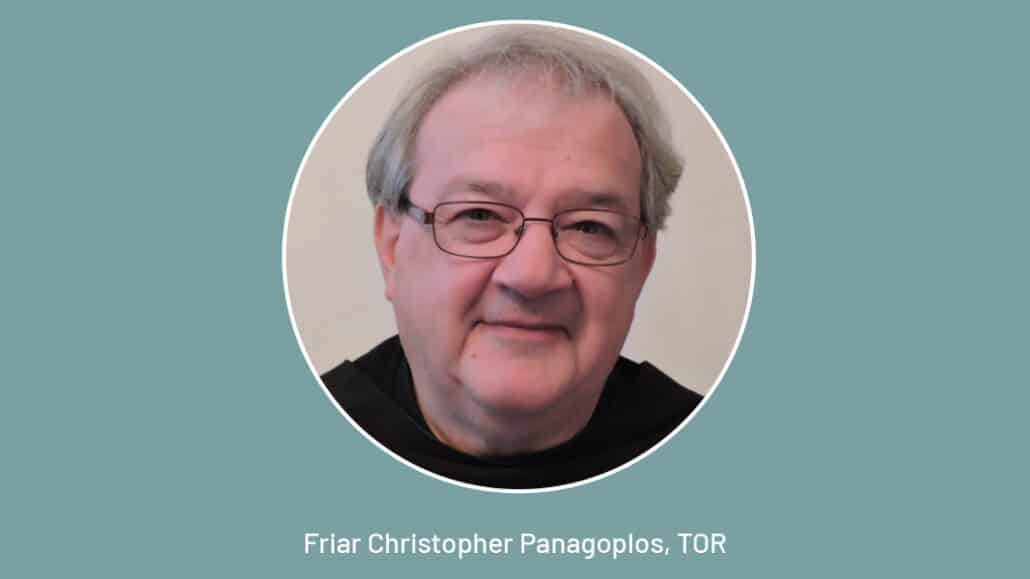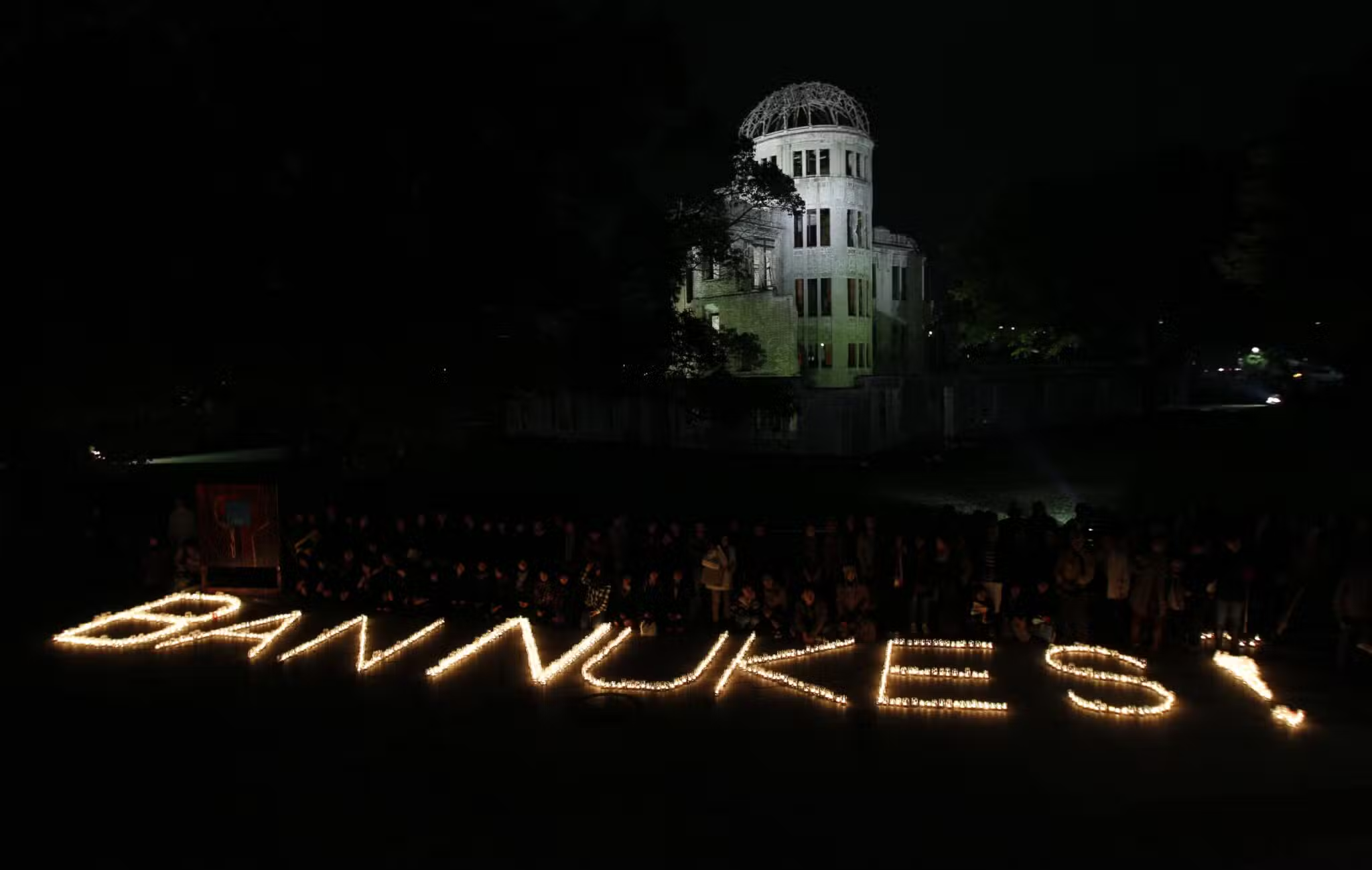If you know anything about Altoona, it’s that the western Pennsylvania town is noted for two things: railroads and the Horseshoe Curve. As the name implies, the horseshoe-shaped railroad track curve was completed by the Pennsylvania Railroad in 1854 and traverses the Allegheny Mountains, connecting Philadelphia with Pittsburgh. The Horseshoe Curve is a National Historic Landmark and draws visitors from all over.
Friar Christopher Panagoplos, TOR, grew up in Altoona, but his road to the priesthood took no curves.
“I was born the oldest of three children to Catholic parents, James Panagoplos and Elizabeth Pacifico Panagoplos,” says Friar Christopher, 75, who resides in the St. Joseph Friary in Hollidaysburg, located only five miles from his hometown. “My grandparents immigrated to America from Messina, Greece, and L’Aquila, Italy.”
A Rich Tapestry of Faith
“My family owned a grocery store and were bakers of genuine hearth-baked bread,” Friar Christopher recalls. “Who could not resist the sights and the aroma of freshly baked bread and the fragrance of cheeses and olives and dry cod packed in crates piled high near the cash register for the holidays?”
Whether being inside or behind the shop or in the alley playing kickball, growing up within the family business helped Friar Christopher to learn at an early age how to respect and work with his relatives and employees, as well as how to cultivate relationships with the clientele who were regular shoppers.
The Altoona area has had a significant Catholic presence. “Across the alley was a convent with 11 Sisters of Mercy,” says Friar Christopher. “Up the street were 12 Sisters of the Immaculate Heart of Mary, who taught us in grammar and high school. And they staffed the parish and taught religion at the Catholic high school. Such was the tapestry of my cultural and religious experiences growing up.”
Faith was integral to his family and upbringing. “My mother insisted that I do my best at whatever I was doing, whether in school or helping my grandfather in the bakery or my dad in the store, checking on inventory,” he says. “All of this was sustained with daily prayer, Sunday Mass, and Tuesday devotions in honor of St. Anthony.”
In addition, Friar Christopher grew up with great exemplars of the faith, who planted the seed of his vocation early in his life. He says the friars assigned to his church had different personalities but worked together to help parishioners.
These friars proved instrumental in his vocation. “Father Vincent taught me Latin and how to serve at the altar,” Friar Christopher says. “He took us to the park for the end-of-the-school-year picnics. Several years later, he became my novice master. Father Damian, who was newly ordained, started a boys’ club (middle to high school ages) and helped us to learn to be gentlemen. Lastly, Father John was the pastor: quiet, straightforward, and observant, especially at report card time. Later on, he became my superior in post-novitiate formation.”
In eighth grade, Friar Christopher decided that he wanted to enter the seminary. “I approached Father Damian after Mass and told him that I wanted to enter the Franciscan prep seminary,” he remembers. “The advice he gave was not what I expected. ‘Go to high school first,’ he said. ‘Learn to get along with others, especially the girls.’ This was excellent advice.” Friar Christopher was ordained in 1976 at the St. Thomas More House of Studies, Washington, DC.
Building Relationships Centered on Christ
During his nearly five decades of being a priest, Friar Christopher has served in various assignments, including as pastor and assistant pastor, school principal and high school religion teacher, hospital chaplaincy, and formator for a diocesan lay ecclesial ministry program.
One of his greatest joys has been to serve as a hospital chaplain. “My ministry to patients and families as a hospital chaplain has enriched my vocation,” Friar Christopher says. “It taught me to be present to them, to become a better and attentive listener, to be mindful and empathetic, and to try to see the face of Christ in the faces of others. To see the Christ-face, I must look and act Christlike—to love and be loving, to value and care for that which does not belong to us.”
Friar Christopher currently serves as a local minister and delegate of the provincial minister as spiritual assistant to the Secular Franciscan Order. “I am one of four friars serving a 12-year term on the Conference of National Spiritual Assistants,” he says.
The conference is composed of four spiritual assistants—representing the Order of Friars Minor, Capuchin, Conventual, and Third Order Regular—who provide assistance to the Secular Franciscan Order. Each Franciscan order has a rule, with distinct charisms and statutes.
“Relationships define life,” he says. “My inspiration comes from the witness the friars have given and still give in the spirit of St. Francis by living the Gospel: hospitality, humility, putting others before self, devotion to prayer and ministry, outreach to the poor, a willingness to assist in a project, accompanying others on their journey, taking time to be contemplative and time to be active, and having the mind and heart of Jesus.”
There are two Franciscan charisms that are particularly dear to Friar Christopher: prayer and penance—living the rule and a conscious desire to work it every day and being mindful of the presence of God and God’s presence in others. A hospitable Franciscan respects the dignity of every person and of all created beings, reflected in the goodness of the Creator. “And to do all this well, one must get up at 5:00 a.m.,” he says.








